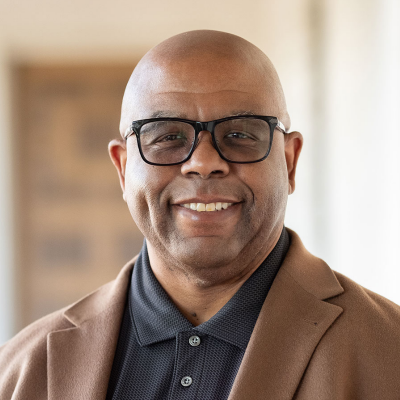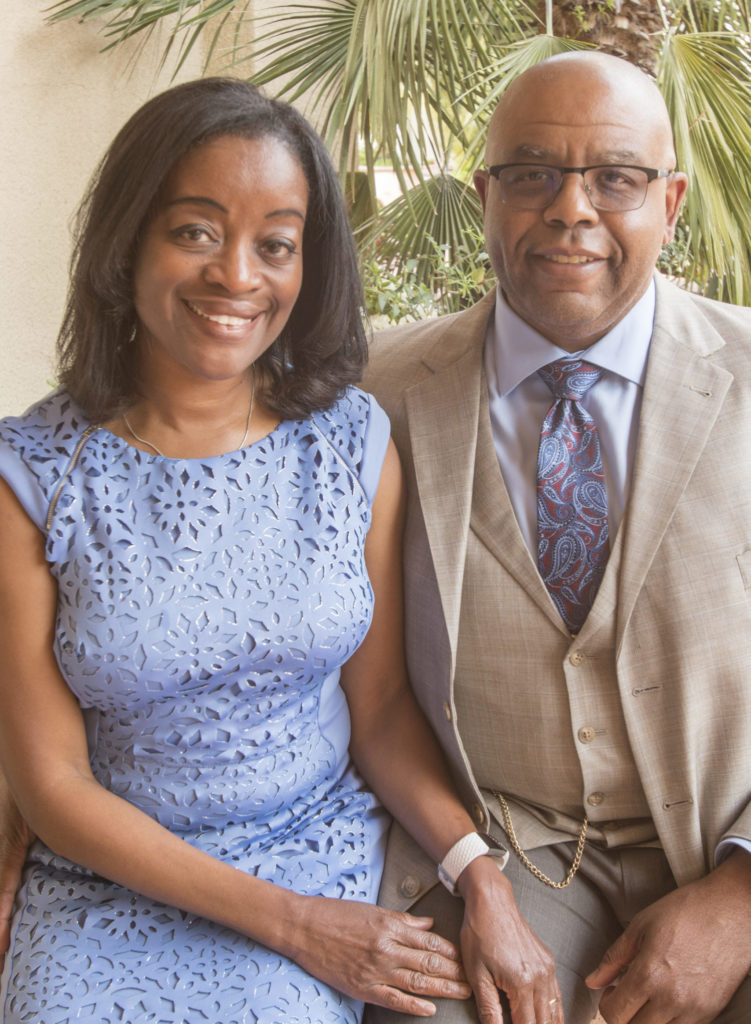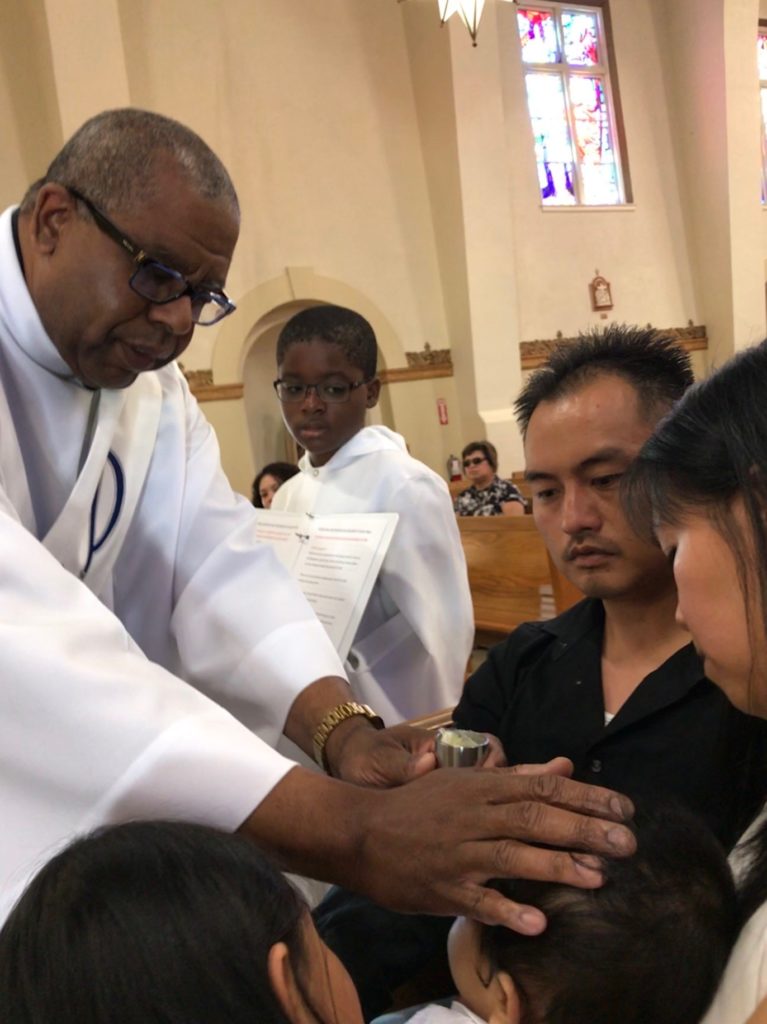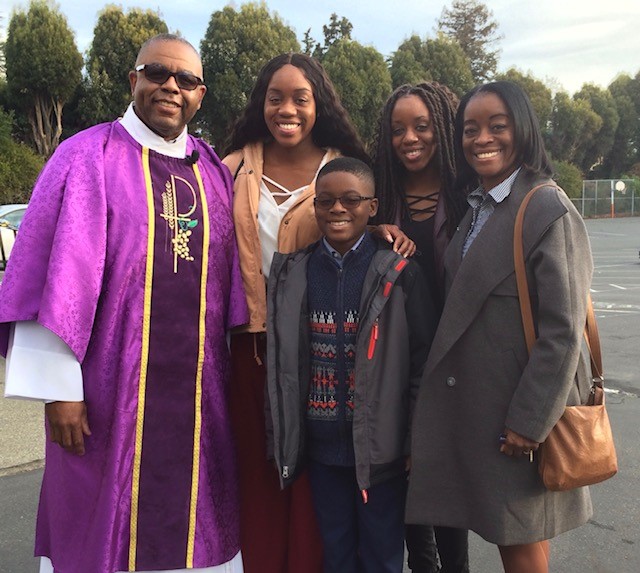Counselors say that what you do not talk out, you will act out. And acting out is usually trouble. Meaningful dialogue is replaced by hostile silence, blame, combativeness and verbal and physical violence. Dialogue, even in all of its complexity, is always better than acting out.
As it is interpersonally, so it is in society. The things a society does not talk about, especially the most important things, get acted out in ways that make meaningful communication almost impossible.
Take race. Our country has a tough time talking about this terribly complicated subject, which some call our nation’s original sin. There are few opportunities to meaningfully engage, so we act out. Stereotyping, fear mongering, and verbal and physical violence render any meaningful dialogue almost impossible. And things get worse. In our silence, we settle for hostility or indifference. It is easy to harbor hostility or indifference toward someone you do not know.
And what is the role of the Church in this?
Deacon Casey Walker has a method. Let’s talk.

Hearing God’s call
Deacon Walker was born and raised in New Jersey. His father was an elder in the Baptist Church. After graduating from Howard University, he joined the Navy where he became a nuclear reactor operator and taught classes in nuclear reactor physics and construction. His background in nuclear reactions prepared him for the volatile conversations he would go on to lead on behalf of the Church.
He and his wife, Andrea, a Catholic, moved to St. Basil the Great Parish in Vallejo, California. While attending Mass he was drawn to the Eucharist. In 2003 he decided to join the Catholic Church at the Easter Vigil.

Deacon Walker was active in parish ministry. He was a choir member, lector, catechist and Bible study leader. In 2007, while spending time in eucharistic adoration, he heard the call to deepen his ministry. In 2018 he was ordained a deacon.
That same year, after the shooting of Stephon Clark in Sacramento, California—a high-profile case that sparked unrest—Deacon Walker began to understand the unique form his ministry would take. He would help people talk.
That year, the U.S. Conference of Catholic Bishops issued “Open Wide Our Hearts: The Enduring Call to Love – A Pastoral Letter Against Racism.” Deacon Walker was invited by his bishop, Jaime Soto, to become the chair of the Diocese of Sacramento’s Intercultural Committee on Access, Integration, and Mission.
He admitted about his reluctance, saying,
“I struggled with wanting to be the head of that group. I’ll truthfully say I didn’t want to be looked at as a token.”
He was perfectly happy doing the regular work that deacons do around the parish—baptisms and Bible studies.

But after discerning Bishop Soto’s invitation, Deacon Walker decided that his life experiences as a Black man and his willingness to engage anyone in conversation would guide this new ministry.
“I needed to be who I was,” he said. “I needed to stop coming up with excuses and go where God had called me.”
Silence is not an option
He led more than a dozen listening meetings in parishes, schools and ecclesial leadership groups and guided multiple training sessions for priests, deacons and lay leaders. He plans to implement training sessions with other faith organizations in Vallejo and the surrounding area.
Bishop Soto said, “Deacon Casey has been an exceptional leader, guiding parish and school members through a very sensitive process of listening and dialogue as it pertains to experiences of racial discrimination within an institution and heightening much-needed awareness of racial justice in our church and communities.”

These talks have not been easy. Deacon Walker has received his share of rejection and dejection. But he pushes on because silence is not an option.
He said,
All I can do is go out and serve in the community. I can bring the hope, needs and prayers of those I encounter back to the altar and ask for the graces of God and the strength of the Holy Spirit so I may be a useful instrument of the Lord.”
On the steps of the Lincoln Memorial, Martin Luther King Jr. said, “I have a dream that my four little children will one day live in a nation where they will not be judged by the color of their skin but by the content of their character.” This is a central tenet of Catholic social teaching, and thanks to Deacon Walker, the Sacramento diocese is creating pathways of understanding and dialogue in a society that desperately needs it.
Catholic Extension Society is honored to share the accomplishments of Deacon Casey Walker, a finalist for the 2022-2023 Lumen Christi Award. Visit this page to read the other inspiring stories from this year’s finalists.


